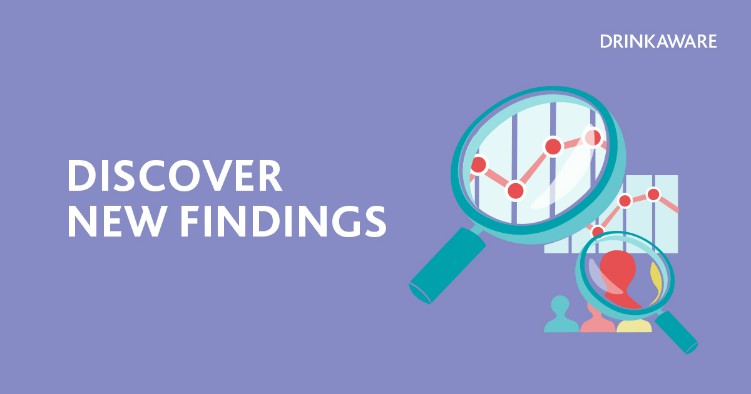Self-reported increase in weekly and binge drinking and increase in intent to drink less. Read on for key findings on behaviours and attitudes towards alcohol a year on from Covid-19.
Key Findings:
- 55% drinking on a weekly basis versus 52% in 2020
- 18–24-year-olds weekly consumption has seen the largest increase from 38% in 2020 to 51% in 2021
- Year on year increase in binge drinking among men from 27% in 2020 to 31% in 2021
- Increase in binge drinking among 18–24-year-olds (16% in 2020 to 31% in 2021)
- 49% of drinkers indicate binge drinking in the past 30 days versus 46% in 2020 (36% 2019 pre-COVID-19)
- 30% of people state they would like to drink alcohol less often (24% in 2020)
- 37% of people said they had already made small positive changes to their drinking habits (31% in 2020).
The Barometer
The annual Drinkaware Barometer provides an overview of adults’ drinking behaviour in Ireland. The first round of findings from the comprehensive 2021 data set reveals entrenched behaviour a year on from the onset of the Covid-19 pandemic, as well as potentially positive attitudes regarding alcohol consumption in Ireland.
When the data from 2021 is viewed alongside the 2020 data, it reveals which behaviours formed in the initial lockdown, have transformed into established patterns of new rituals towards alcohol. Of most concern is the increase in binge drinking. On an average day of drinking in 2021, over 1 in 5 (22% v 20% 2020) of those who drink, report drinking six or more standard drinks in that single setting i.e. binge drinking. Males are more than twice as likely to engage in binge drinking than females. 18-24-year olds more than other age cohorts- 31% of this age group reported binge drinking in 2021 compared to 16% at the time of the initial lockdown phase in 2020.
Consistently across the 2021 and previous Drinkaware Barometer surveys, people report a desire to drink less (circa 30%). This desire is especially evident in the 2021 Barometer amongst those who are binge drinking (40%), or who have increased their consumption in the past twelve months (50%). An additional and encouraging finding is that more than 1 in 3 (37%) have already made small positive changes to their drinking behaviour, which has increased from 31% in 2020.
In terms of the potential impact of binge drinking, the link between mental wellbeing and excessive alcohol consumption is further evidenced in the 2021 Barometer’s findings where low mental wellbeing peaked for those for who say their consumption increased in the past twelve months (43%), and also for those under 50 years of age (40% or more).
CEO Comment:
‘This may well be the most important Barometer we have conducted to date, because the findings when compared with 2020 and previous years’ data, show us what potentially harmful drinking patterns have become normalised. We know through our research and our extensive engagements with the public, that people want to drink differently. What is really striking this year is the important recognition of their unhealthy consumption by those who binge drink and those who say their drinking has increased in the past twelve months, because these are among the key groups saying they want to drink less.
What is clear, is that people are open to making positive changes, and that there is a growing demand for the evidence-informed tools and resources that our work in outreach and education provides. And with 85% awareness of us amongst the public as a provider of information on alcohol, it is Drinkaware’s public mandate to continue to do so, especially during these difficult times.
There is a gap between the increase in binge drinking and the desire to drink less, and this needs to be closed with information and support that is helpful and user-friendly. More widespread public education and engagement is needed that speaks directly to these groups, but does so with understanding and practical support that enables them to make positive changes in regard to their alcohol consumption. Many people are unhappy with the amount they are drinking and without the agency and empowerment to make the desired changes these behaviours and attitudes will continue post Covid-19 and may become entrenched in our society.’ Visit our Drinkaware Research page to learn more about our work in research, upcoming reports and briefings.
Visit our research homepage to learn more about upcoming research, published reports and upcoming briefings.


